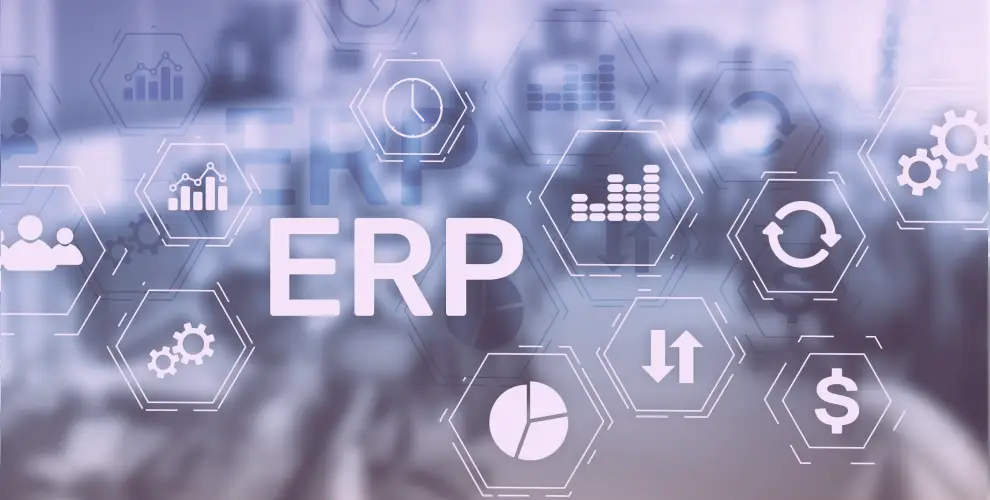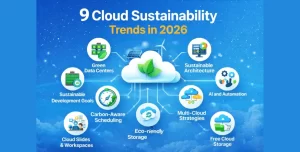
Leveraging AI to Automate ERP Workflows
Table of Contents
Leveraging AI to Automate ERP Workflows
Enterprise Resource Planning (ERP) platforms have always promised a “single source of truth,” bringing finance, operations, supply chain, and HR into one integrated system.
Yet many organizations still wrestle with manual data entry, slow approvals, and unpredictable market changes.
Artificial Intelligence (AI) is now delivering the next leap forward. By pairing AI with ERP, businesses can automate complex workflows, reduce human error, and gain actionable insights in real time.
This article explores in detail how AI enhances ERP systems and provides guidance on how companies can implement these technologies responsibly, drawing on experiences observed in the wider ERP consulting industry.
While firms across the globe – including various independent implementation consultancies – have been testing these approaches, the principles and practices outlined here are applicable to organizations of any size or sector.
Why AI and ERP Are a Natural Fit
Traditional ERP software excels at storing and processing structured data: transactions, inventory counts, employee records.
But today’s businesses need predictive analysis, contextual decision-making, and the ability to process massive, sometimes unstructured datasets.
AI provides that missing intelligence:
– Machine Learning (ML) algorithms detect patterns and forecast outcomes.
– Natural Language Processing (NLP) converts unstructured inputs – emails, PDFs, voice messages – into usable ERP data.
– Computer Vision recognizes images or scanned documents, enabling automated approvals and data extraction.
The result is an ERP system that not only records history but also anticipates the future, adjusting processes to changes in demand, supply, or regulatory conditions without the need for constant human oversight.
Core Areas Where AI Automates ERP Workflows
Data Capture and Validation
Manual data entry remains one of the costliest and most error-prone pain points in ERP.
AI-powered optical character recognition (OCR) and intelligent document processing can scan supplier invoices or customer orders, auto-fill ERP fields with high accuracy, and flag anomalies instantly.
This dramatically reduces administrative work and improves data quality, allowing finance and procurement teams to focus on analysis instead of clerical tasks.
Predictive Demand Forecasting
Inventory shortages or excess stock eat into profit.
AI models factor in historical sales, seasonality, economic indicators, and even weather patterns to generate rolling demand forecasts, trigger automated purchase orders, and adjust safety-stock levels dynamically.
Manufacturers and retailers benefit most, but service businesses can apply similar logic to staffing and resource planning.
Finance and Accounting Automation
AI is transforming financial modules by reconciling bank statements automatically, categorizing expenses in real time, and identifying fraud through anomaly detection.
Month-end closing times can be significantly reduced, and audit trails become more reliable when machine learning handles routine reconciliations.
Supply Chain Resilience
Global supply chains are increasingly complex and subject to disruption.
AI helps ERP systems reroute shipments, recommend alternative suppliers, and simulate ‘what-if’ scenarios.
Machine learning continuously refines these recommendations, ensuring operations stay agile even during geopolitical or environmental upheavals.
Human Resources and Talent Management
Recruitment, onboarding, and employee engagement also gain efficiency.
AI chatbots answer policy questions 24/7, sentiment analysis uncovers morale issues before they escalate, and candidate screening models surface top applicants faster.
For mid-sized firms without dedicated HR analysts, this is a game-changer.
Implementation Lessons and Best Practices
Organizations often underestimate the preparation needed to integrate AI with ERP. Based on experiences shared across the ERP consulting community, several best practices stand out:
1. Define a Measurable Goal – Start small with objectives like reducing manual invoice entry by 70% within six months.
2. Ensure Data Quality and Governance – AI is only as reliable as the data it learns from. Cleansing legacy records and establishing strong data governance are essential.
3. Select the Right Technology Stack – Major ERP vendors – SAP, Oracle NetSuite, Microsoft Dynamics, and open-source platforms such as Odoo – offer AI modules. Some organizations benefit from combining native ERP features with specialized third-party AI services.
4. Pilot Before Full Rollout – A limited proof-of-concept helps identify integration issues and build stakeholder confidence.
5. Invest in People and Training – Staff need upskilling to interpret AI-driven insights and to remain the final decision-makers on critical business calls.
Addressing Common Concerns
While the potential is enormous, leaders often voice legitimate concerns about AI in ERP.
Data Privacy and Compliance
AI-driven ERP systems aggregate data from multiple sources. Encrypting data in transit and at rest, adopting role-based access controls, and ensuring compliance with regulations such as GDPR or HIPAA must remain top priorities.
Impact on Workforce
Rather than eliminating jobs, AI shifts them. Teams move from repetitive tasks toward analysis, strategy, and customer engagement. Organizations that plan for reskilling find that staff can be redeployed to higher-value roles rather than displaced.
Cost and ROI
AI projects require upfront investment in software, infrastructure, and training. However, most organizations see measurable returns – reduced processing times, lower error rates, and faster decision cycles – within 12 to 18 months.
Emerging Trends to Watch
The next wave of innovation promises to push ERP intelligence even further:
– Generative AI for Reporting – Natural-language queries that produce detailed visual dashboards and summaries.
– Autonomous Agents – AI bots capable of managing entire procurement cycles or negotiating supplier contracts.
– IoT and Edge AI Integration – Real-time sensor data feeding AI models to predict machine failures before they occur.
– Cross-Platform AI Ecosystems – Seamless data sharing between ERP, CRM, and analytics tools to create a unified decision-making environment.
Practical Steps for Business Leaders
For executives considering AI-driven ERP automation, these steps can guide a smooth transition:
1. Audit Current Workflows – Identify bottlenecks where automation would deliver the highest impact.
2. Evaluate Vendor Roadmaps – Determine whether your existing ERP vendor offers AI capabilities before pursuing third-party options.
3. Plan a Phased Deployment – Break large projects into manageable sprints with clear success metrics.
4. Create a Governance Framework – Address data ethics, bias mitigation, and continuous monitoring from the outset.
5. Measure and Iterate – Collect performance data after each phase and refine the approach to maximize value.
The Human Element
AI may handle routine tasks, but human oversight remains indispensable. Domain experts are needed to validate AI outputs, refine models, and ensure that decisions align with company values and regulatory standards.
Successful AI-ERP initiatives keep business users deeply involved from requirement gathering through post-launch optimization, balancing automation with accountability and trust.
Conclusion
Artificial Intelligence is rapidly transforming ERP from a record-keeping tool into an intelligent decision-making platform.
Whether automating invoice entry, forecasting demand, or safeguarding supply chains, AI enables faster, more accurate operations.
For organizations considering this journey, the key is to start with a focused objective, maintain clean data, and involve people at every stage.
Companies that move early will not only lower operational costs but also gain the agility needed to thrive in an unpredictable market. The future of ERP is not just digital – it is intelligent.
Want to keep up with our blog?
Our most valuable tips right inside your inbox, once per month.
Kadri Mohd
Kadri Mohd Azharuddin is a technology strategist and business consultant at Globalteckz, an official Odoo Partner. With years of experience in ERP implementations, digital transformation, and IT ventures, he helps businesses streamline operations through tailored Odoo ERP solutions.





